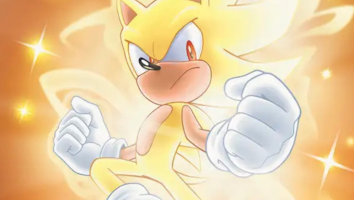A look at six shows-some brand-new, others PBS veterans-that got their start on PBS.
Cheryl Gotthelf is executive project director of Scholastic’s The Magic School Bus
January 1990-December 1991
Scholastic Productions Inc. (SPI) and parent company, Scholastic Inc., embark on a company-wide project to produce an animated TV show from its best-selling children’s book series The Magic School Bus. Since an educational show about science requires a huge outreach to schools and communities, a public/private partnership with the National Science Foundation (NSF) and other foundations and corporations is sought. PBS is recognized as a natural fit for the launch of the series.
Alice Cahn and others from PBS and Deborah Forte, SPI division head, and I meet with executives from the PBS station South Carolina ETV and NSF project officers to determine the appropriate partnerships necessary to launch an all-new children’s science program on PBS.
Scholastic’s The Magic School Bus will be PBS’ first animated show and the first production between SPI and PBS.
Once South Carolina ETV was on board as the presenting station, a proposal for research and development followed by series production is submitted to the NSF.
Early 1992
NSF is the first to commit to funding a pilot animatic that helps to inform series development. Creation and testing of the pilot is completed early in 1992.
Meanwhile, other funders, including the Carnegie Corporation of New York and the U.S. Department of Energy, join the effort, enabling Scholastic Productions to begin scripting while looking for a corporate underwriter.
Early 1993
Lily Tomlin signs on to play Ms. Frizzle, and Malcolm-Jamal Warner agrees to play The Producer.
The show goes into full production with Nelvana.
Preparations for a launch in the fall of 1994 begin with a national publicity campaign, the formation of a community outreach partnership program with eight national youth-serving organizations to reach community groups and educators, active pursuit of consumer promotion partners and licensees, the development of a museum collaborative and exhibits with major children’s and science museums in the U.S. and Canada.
Fall 1993
A year-long station relations effort begins at one of the PBS regional conferences, where the series and Scholastic Productions are introduced to PBS stations.
Spring 1994
Similar promotional events are held at other PBS regional events, culminating at the PBS annual meeting in June with Scholastic’s The Magic School Bus star Lily Tomlin as featured speaker.
During this time, press materials and special promotions targeted to stations are sent, including teaser postcards, mailings and a specially created station handbook designed to create opportunities for stations to coordinate with local community partners, underwriters, schools, libraries and press to promote the series for the first season.
Summer 1994
Microsoft comes on board as the exclusive corporate underwriter for the series.
Lily Tomlin is featured at the Tele-vision Critics Association Press Tour in Los Angeles in July.
Fall 1994
Scholastic’s The Magic School Bus launches with a sneak preview on Fox TV, a Happy Meal promotion with McDonald’s, a national traveling museum exhibit and eight national youth-serving organizations as partners.
The show, which airs on Sundays, is immediately available to 92 percent of U.S. TV households because of terrific station support due to SPI’s extensive press and community outreach, joint marketing and promotion opportunities, and a great show!
In the first season, Scholastic’s The Magic School Bus wins more than a dozen awards, including an Emmy for Lily Tomlin, six CINE Golden Eagles, Parents’ Choice National Television Hall of Fame Classic Award, National Educational Media Network Gold Apple, National Educational Association Award, and Environmental Media Association Award.
1995-1996 (Season Two)
Scholastic’s The Magic School Bus continues to be one of PBS’ most popular kids shows, receiving three Daytime Emmy nominations and a Prix Jeunesse nomination.
1996-1997 (Season Three)
Scholastic’s The Magic School Bus goes daily. It is stripped Monday through Friday and on Sunday.
Events this season include: three more Emmy nominations, a Christmas special with Dolly Parton gets great press and high ratings, a live puppet mall show begins a tour, a live theatrical show tours, the Traveling Magic School Bus gets a send off at Tavern on the Green in New York City, and The Ms. Frizzle Award is announced (US$10,000 in cash and prizes to a science teacher for an imaginative ‘Ms. Frizzle-like’ classroom science proposal).
1997-1998 (Season Four)
Consumer awareness continues to grow through support from PBS stations. Scholastic’s The Magic School Bus community activities continue, and include a traveling museum that will exhibit at over 100 children’s museums and science centers, an in-school publishing and distribution system developed by Scholastic, consumer partner promotions with Howard John-son’s, Hardee’s, Long John Silver, two Scholastic’s The Magic School Bus live puppet shows will tour the country, and the real Traveling Magic School Bus will visit children in schools, libraries and malls in communities across the U.S.





















